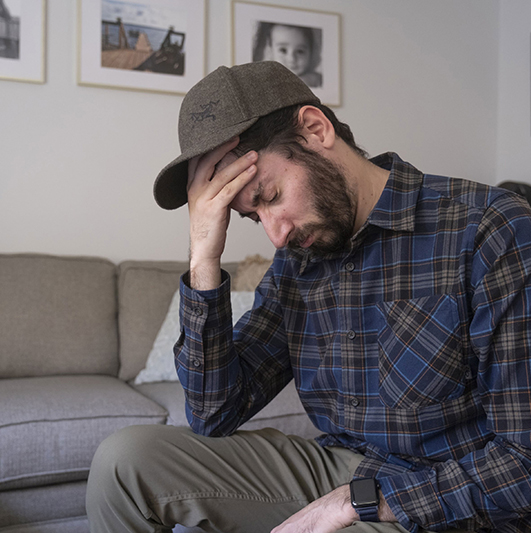What Happens at a Primary Care Visit?

September 28, 2023
A primary care physician (PCP) checks your overall physical and mental wellbeing. Generally, both men and women are recommended to see your PCP at least once every year for a physical exam.
“Visits to your PCP vary to some degree based on your age, gender, health condition and more,” says primary care physician Darshini Shah, M.D. “With an open line of communication and transparency, your PCP is here to collaboratively work with you to help evaluate and improve your health.”
Here is What You Can Expect During Your Annual Physical Exam
- Height and weight measurement: Your PCP will use your weight and height to measure your body mass insight (BMI), which can help identify if you need to lose or gain weight for better health.
Being overweight or underweight, as well as sudden loss or gain of weight, can be an indicator of certain health conditions. These measurements will help provide a baseline to your PCP as well as help evaluate progress toward better health.
- Blood pressure check: Your blood pressure is checked by the nurse during your visit using a cuff, usually placed around your arm. The nurse will inflate the cuff using a small hand pump to measure your blood pressure. A normal blood pressure level is less than 120/80 mmHg. Your doctor may order further testing if your blood pressure stays above or below normal.
- Health history: First and foremost, your doctor will ask you a series of questions regarding your current and past medical history, surgical history, family medical history, medications, allergies, and past vaccinations. As always, remember to be open and transparent with your physician.
Be prepared to answer some questions regarding your lifestyle, such as:
- How active would you say you are on a daily/weekly basis?
- Do you smoke? Drink alcohol? Use drugs? If so, how often?
- How is your diet?
- Are you sexually active?
- How would you explain your sleep schedule?
- How is your mood?
- Do you have any discomfort or pain?
- Complete physical exam: Your PCP will use tools to look into your eyes, nose, ears and throat. They will also listen to your heart and lungs to identify any issues. In addition, the exam also includes -
- Listening to your heart and lungs to evaluate heart sounds and breathing patterns
- Examining parts of your body such as the abdominal to feel any abnormalities
- Checking your skin to see any signs of skin cancer
- Testing your motor functions and reflexes by tapping your knee and arm with a small tool
- Laboratory tests: To complete your physical, your PCP may advise you to get several laboratory tests based on your age, gender and medical history. This can include blood, urine and stool tests. The results of these tests will help detect acute or chronic illnesses that are not visible externally.
- Screening test: Your doctor may also order screenings depending on your age, gender, medical conditions and results of your physical exam. This is also an opportunity to ask your doctor about any testing that you would like to get screened for.
How to Prepare for Your Primary Care Appointment
- Arrive fifteen minutes early to your appointment to fill out any paperwork.
- Bring your ID, medical insurance, past medical records and list of medications.
- Bring a list of anything you’re allergic to and the reaction, if exposed.
- Any symptoms, in case you’ve noticed any issues
- Results of any recent medical tests performed
- Contact details of any current specialists you’re seeing
- List of health related questions you may want to ask:
- What screenings are recommended for my age?
- Which vaccines do I need?
- Can you refer me to a specialist?
Follow-Up
Your doctor may request a return visit or phone consultation to discuss your test results from laboratory tests and any additional screening tests. This is also your chance to ask any questions that you may have forgotten to ask your doctor.
“Primary care doctors can help identify many potential health issues before they become severe. They can also help you learn more about how to stay healthy and happier,” says Dr. Shah.
Next Steps & Resources:
- Meet our clinical contributors: Darshini Shah, M.D.
- To make an appointment with one of the doctors above, or a doctor near you, call 800-822-8905 or visit our website.
- Learn more about primary care at Hackensack Meridian Health







